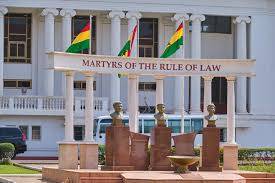Speaker's Vacation of 4 Seats Unconstitutional; Ghana’s Supreme Court Weighs Declares
In a landmark decision, the Supreme Court of Ghana recently ruled that the Speaker of Parliament’s action in vacating the seats of four Members of Parliament (MPs) was unconstitutional. This ruling has significant implications for Ghana’s parliamentary system and the broader political landscape.
Background of the Case
The controversy began when the Speaker of Parliament, Alban Bagbin, declared the seats of four MPs as vacant, citing their failure to adhere to constitutional requirements. The MPs in question, who were members of the opposition National Democratic Congress (NDC), had been absent from parliament for extended periods. The Speaker argued that, according to the Constitution, any MP who fails to attend parliamentary proceedings for a certain number of days without valid reason could have their seat declared vacant.
However, the decision was quickly contested, leading to a legal battle that culminated in the Supreme Court ruling. The petitioners argued that the Speaker's action was arbitrary and violated constitutional principles, particularly the rights of MPs to participate in Parliament and the due process required for vacating seats.
The Supreme Court's Ruling
In its judgment, the Supreme Court unanimously ruled that the Speaker's action in vacating the four seats was unconstitutional. The Court clarified that while the Constitution grants the Speaker certain powers, these powers must be exercised within the framework of established legal principles and procedures. Specifically, the Court emphasized that the process of vacating an MP's seat must involve a clear, legal, and fair procedure, which includes proper notification, opportunities for the MPs to respond, and adherence to the rules of natural justice.
The Court noted that the Speaker’s decision lacked the required due process and did not provide sufficient opportunity for the affected MPs to defend themselves against the allegations of absenteeism. It also pointed out that the Speaker had failed to follow the proper parliamentary procedures in declaring the seats vacant.
Implications for Ghana's Political Landscape
This decision has far-reaching consequences for Ghana’s political environment. First, it reinforces the importance of adhering to constitutional provisions, ensuring that actions taken by public officials, including the Speaker of Parliament, are subject to legal scrutiny. The ruling also strengthens the principle of due process, emphasizing the rights of MPs to fair treatment in the exercise of their duties.
Moreover, the ruling has significant implications for parliamentary discipline. While absenteeism among MPs remains a contentious issue, the Court’s judgment highlights the need for a balanced approach that ensures MPs are held accountable without violating their constitutional rights. The decision may prompt a reevaluation of the procedures for handling absentee MPs and how Parliament ensures that elected representatives fulfill their obligations.
From a political standpoint, the ruling is also a blow to the ruling New Patriotic Party (NPP), as the affected seats were considered to be key to maintaining a majority in Parliament. The NPP’s challenge to the opposition MPs’ absences was seen as a strategic move to consolidate power, and the Supreme Court’s decision reaffirms the importance of respecting democratic processes in parliamentary governance.
Conclusion
The Supreme Court’s ruling on the Speaker’s vacation of the four seats marks a crucial moment in Ghana's constitutional history. It upholds the rule of law, checks the powers of parliamentary leadership, and protects the rights of elected representatives. While it may have immediate political consequences, it also sets a precedent for future disputes regarding parliamentary procedures and reinforces the strength of the constitutional framework in Ghana’s democracy.


